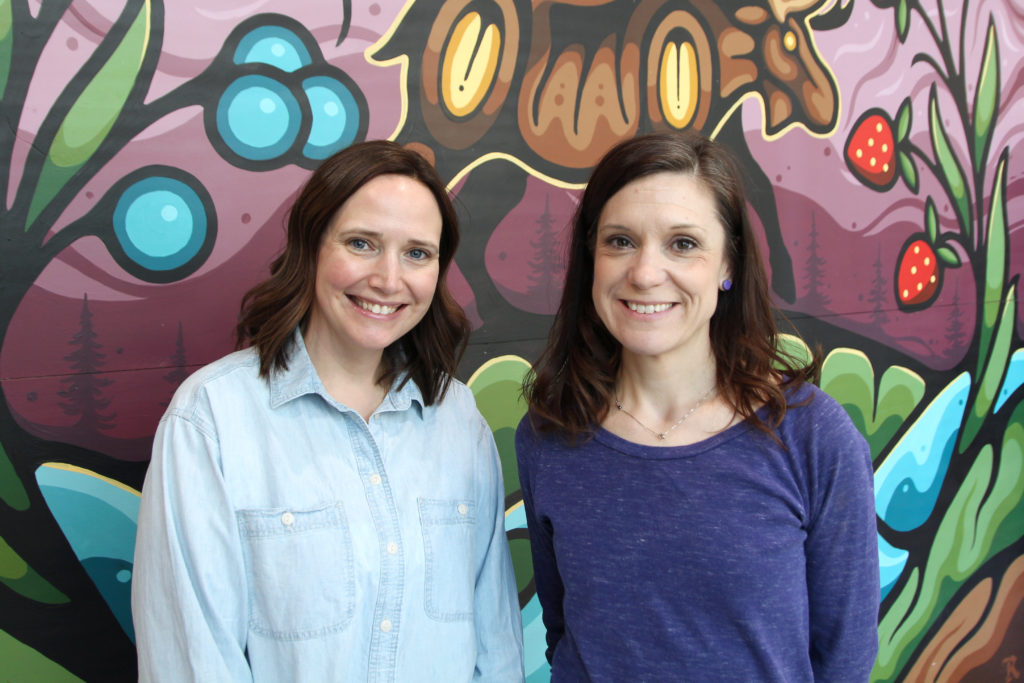Dietitian Day (March 20)
by Gina Fata
 (L-R) Lindsay Sutherland, MSc RD and Jonelle Armitage, RD.
(L-R) Lindsay Sutherland, MSc RD and Jonelle Armitage, RD.March 20th is Dietitian Day in Canada. It celebrates dietitians as regulated health care professionals, committed to using their specialized knowledge and skills to translate the science of nutrition into terms everyone can understand to unlock food’s potential and support healthy living for all Canadians.
Dietitians are rigorously trained and regulated health care professionals and remain the most credible source of food and nutrition information. Dietitians can help cut through the clutter of fads and gimmicks. They provide ethical, evidence-based nutrition advice to help you eat in a way that works with your culture and traditions, preferences, nutritional and personal needs such as taste, food skills, budget, and health conditions.
Two of Thunder Bay Regional Health Sciences Centre’s registered dieticians — Lindsay Sutherland and Jonelle Armitage —took the time to connect with us and give us a glimpse into their roles.
What does it take to become a registered dietitian?
Dietitians undergo comprehensive and rigorous education. To become a dietitian, you need to complete a university degree in human nutrition and dietetics as well as period of supervised practical training; this is generally a year long. You then are required to pass a national licensing exam.
What inspired you to work in the field?
Everybody eats! We wanted to learn the science behind nutrition and how our body uses nutrients to function and stay healthy. Being a dietitian allows you to combine your love of food and science while helping others understand that something they do every day can greatly impact their health.
What is unique about your role?
We have the opportunity to work with all age groups in all walks of life. Dietitians have many different career options including working in the food industry, working at the community level (such as homecare and with community health centres), working as a clinical dietitian as well as working in public health, just to name a few.
What do you love about your job?
Working in an acute care setting, we often see patients when they are very unwell. Nutrition interventions put in place by Dietitians can positively impact a patient’s course in hospital. A few examples include: helping a child who is admitted with faltering growth by providing support and nutrition education to their family; assisting a patient to optimize their micro/macronutrient intake to support wound healing; providing a critically ill patient with adequate nutrition to support their recovery to go from being on a ventilator to walking around with physio. Seeing the positive impacts of clinical nutrition interventions and knowing that nutrition played a role in patient recovery is very rewarding.
Promoting a healthy lifestyle is part of your messaging to patients. Do you have any personal tips on how to stay healthy?
Enjoy the food you eat and do the things that make you happy! Take a balanced approach when making lifestyle changes and try to avoid an ‘all or nothing’ mentality.